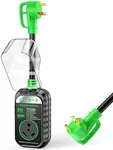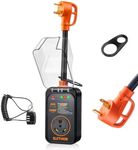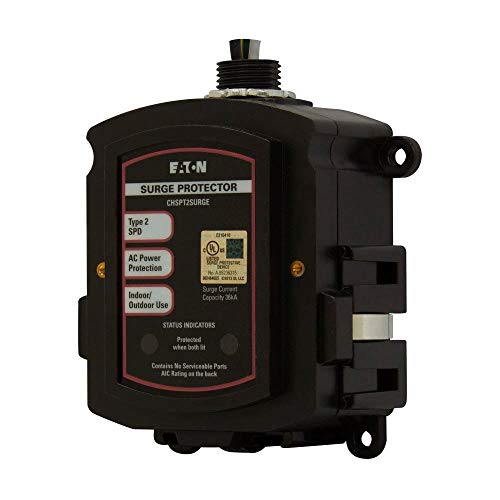Best Rv Surge Protectors
From leading brands and best sellers available on the web.
GEARGO
GEARGO RV Surge Protector 50 Amp RV Circuit Analyzer Surge Guard Full Protection(9500 Joules), RV Adapter Plug for Camper(Orange)
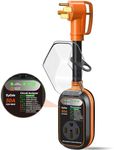
EyGde
RV Surge Protector 50 Amp, Upgraded 6000 Joules Power Circuit Analyzer with LED Indicator Light, Surge Protection 50A Extension Plug for RV Camper Trailer Accessories, Designed with Easy to Use Handle

Progressive Industries
Progressive Industries HW50C Portable Electrical Management System - 50 Amp

Camco
Camco Power Grip Camper/RV 30-Amp Circuit Analyzer | Features Integrated Surge Protection & Indicator Lights | Protect RVs from Power Surges and Faulty Electrical Connections | Yellow (55315)

MILLIONHOME
MILLIONHOME RV Surge Protector 30 Amp Waterproof, 9800 J Upgraded RV Power Surge Protector with Safety Certification, RV Adapter Plug for Camper, Circuit Analyzer for Travel Trailers
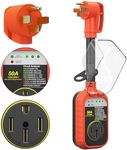
AONOKA
RV Surge Protector 50 Amp Waterproof, Camper Accessories for Travel Trailers RV Electric Watchdog 6250 Joules RV Circuit Analyzer RV Adapter Power Monitor Surge Guard 50 amp Defender,CSA Approved
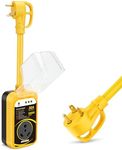
Kohree
Kohree RV Surge Protector 30 Amp with Waterproof Cover, 10000 Joules 30 Amp RV Surge Protector for RV Camper, All-in-1 Circuit Analyzer w/LED Indicators, RV Power Surge Protector for Camper

EyGde
EyGde RV Surge Protector 30 Amp, Power RV Defender Circuit Analyzer with Waterproof Cover, 6500 Joules Surge Protection 30A Plug Adapter with Extension Cord for Camper Travel Trailer Accessories

GEMEK
GEMEK RV Surge Protector 30 Amp RV Circuit Analyzer Surge Guard Full Protection (9800 Joules), RV Adapter Plug for Camper, Trailer, Truck, Motorboat, Yacht, Mobilhome (Yellow-30A)
